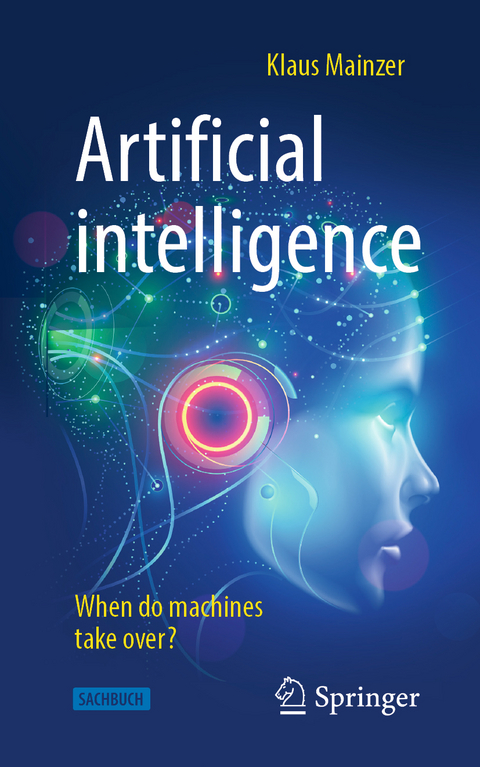
Artificial intelligence - When do machines take over?
Springer Berlin (Verlag)
978-3-662-59716-3 (ISBN)
Prof. Klaus Mainzer studied mathematics, physics and philosophy at the University of Münster, where he also earned his doctorate in philosophy (1973) and habilitated. Before his appointment to the Chair of Philosophy and Philosophy of Science at the TUM and his appointment as Director of the Carl von Linde Academy in 2008, he worked as Professor (1981-1988) and Prorector (1985-1988) at the University of Konstanz and as Professor and Founding Director of the Institute for Interdisciplinary Computer Science (1988-2008) at the University of Augsburg. He is a member of numerous (inter)national committees and academies. From 2012 to 2014 he was founding director of the Munich Center for Technology in Society (MCTS).
Introduction: What is AI?.- A brief history of AI.- Logical thinking becomes automatic.- Systems become experts.- Computers learn to speak.- Algorithms simulate evolution.- Neural networks simulate brains.- Robots become social.- Automobiles become autonomous.- Factories become intelligent.- From natural to artificial to super intelligence?.
| Erscheinungsdatum | 29.10.2019 |
|---|---|
| Reihe/Serie | Technik im Fokus |
| Zusatzinfo | XI, 279 p. 57 illus., 10 illus. in color. |
| Verlagsort | Berlin |
| Sprache | englisch |
| Maße | 127 x 203 mm |
| Gewicht | 374 g |
| Themenwelt | Sachbuch/Ratgeber ► Natur / Technik ► Technik |
| Informatik ► Theorie / Studium ► Künstliche Intelligenz / Robotik | |
| Technik | |
| Schlagworte | Abstract machine • AI • Automaten • Big Data • Eliza • Industrial Internet of Things • Industrie 4.0 • Industry 4.0 • Intelligente Systeme • Intelligent Systems • KI • LISP • natural intelligence • Natürliche Intelligenz • Neural networks • Neuronale Netze • PROLOG • Schwarmintelligenz • SMART Manufacturing and Smart Factory • Superintelligence • Superintelligenz • Swarm Intelligence (SI) • Watson |
| ISBN-10 | 3-662-59716-0 / 3662597160 |
| ISBN-13 | 978-3-662-59716-3 / 9783662597163 |
| Zustand | Neuware |
| Informationen gemäß Produktsicherheitsverordnung (GPSR) | |
| Haben Sie eine Frage zum Produkt? |
aus dem Bereich


